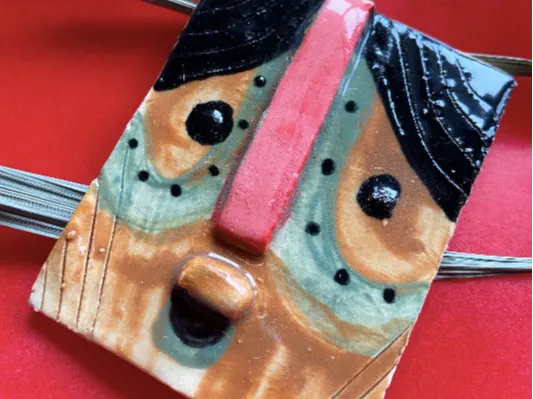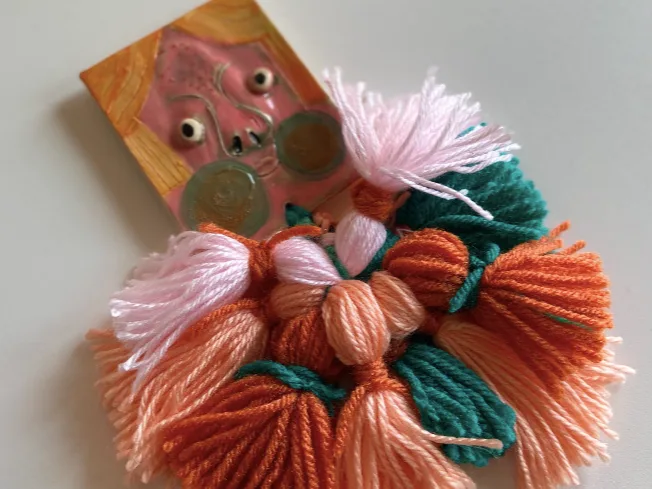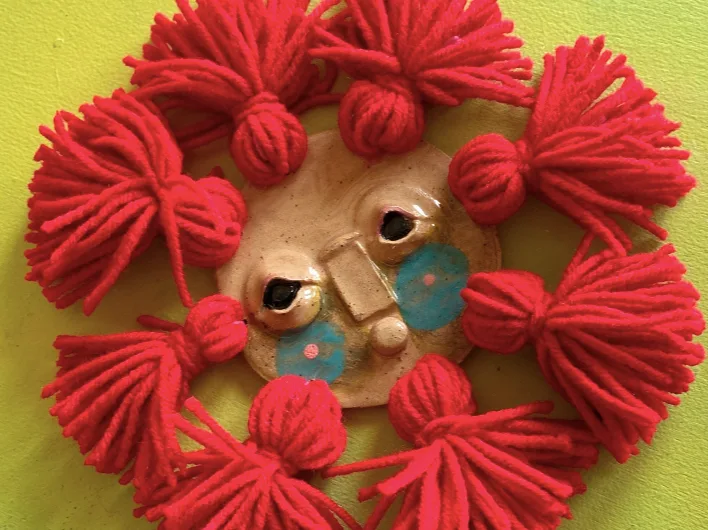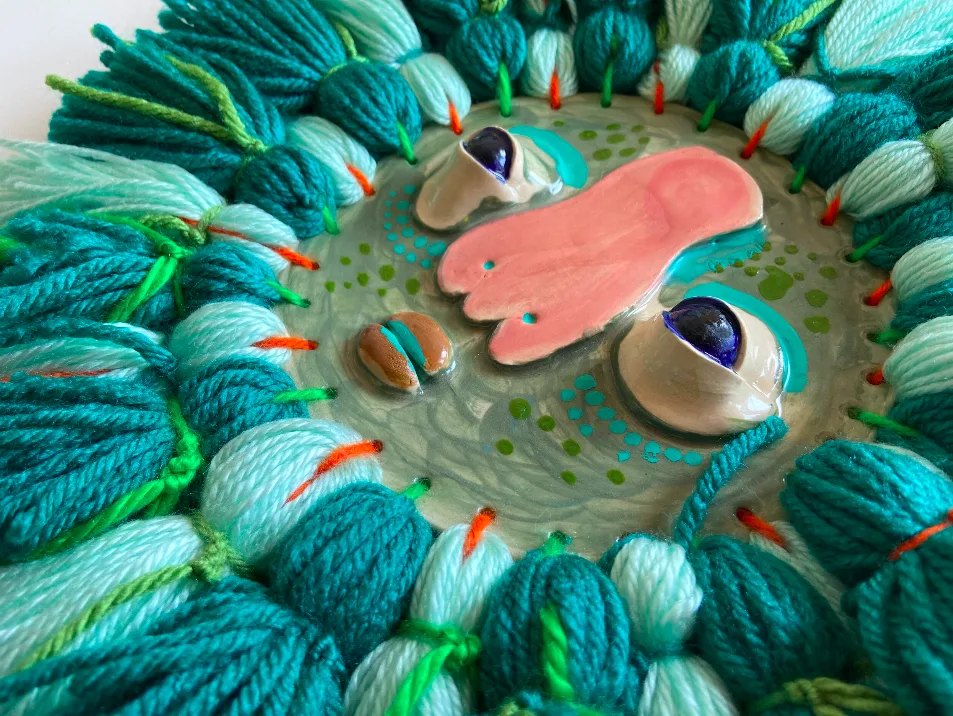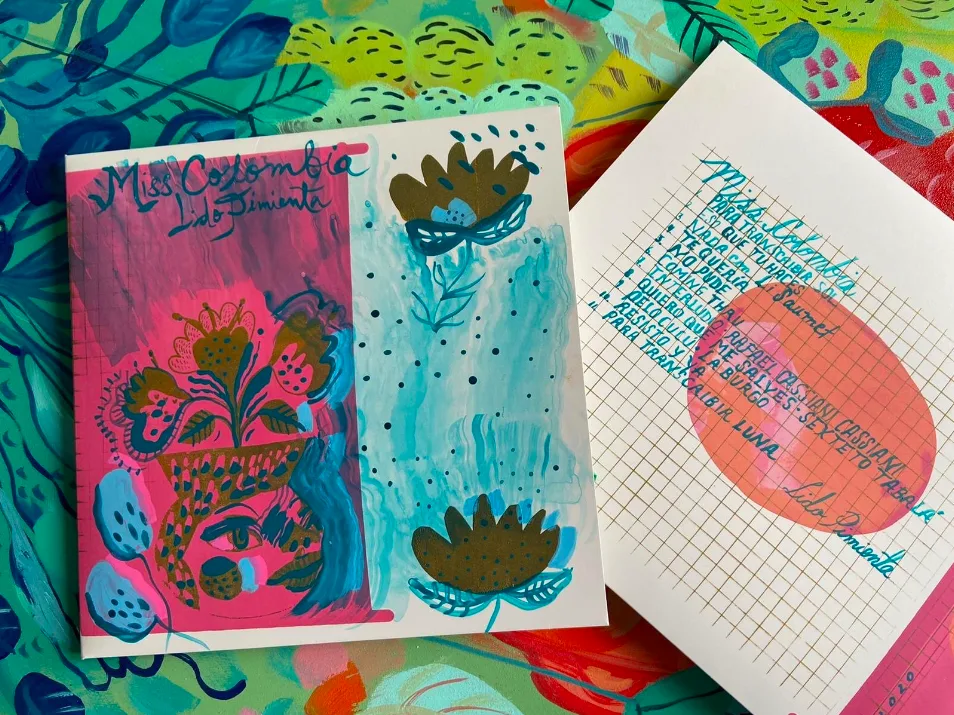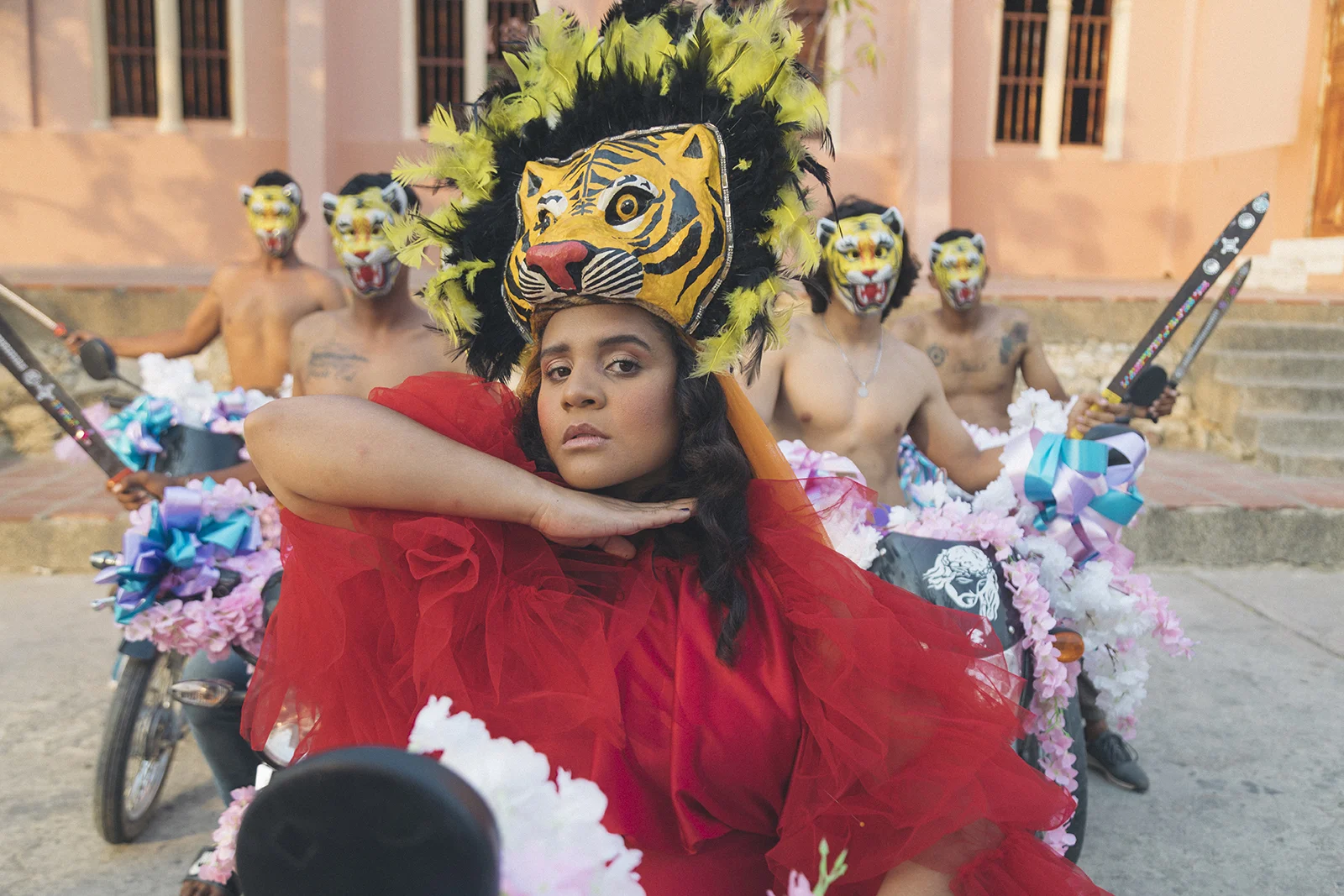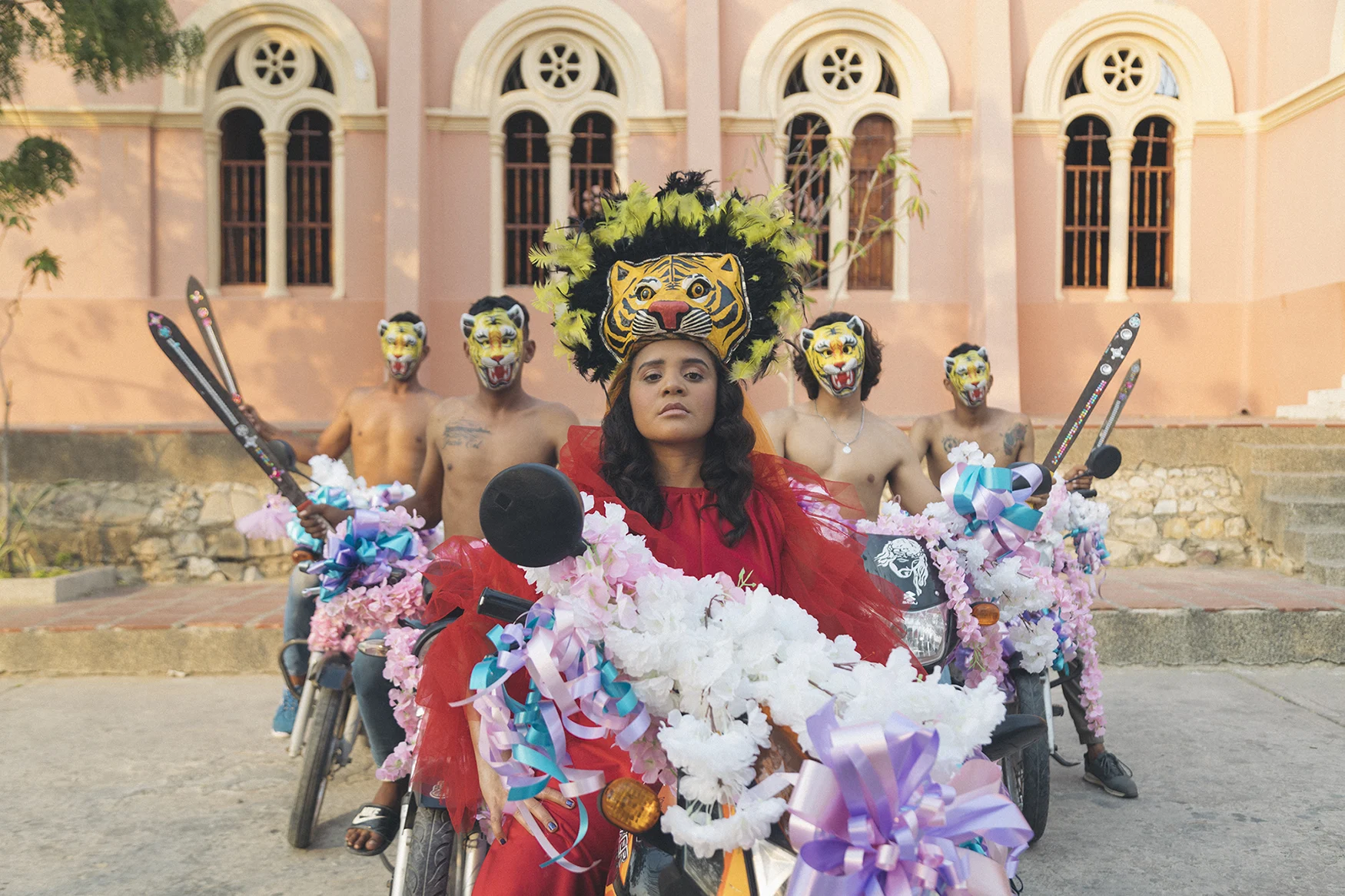
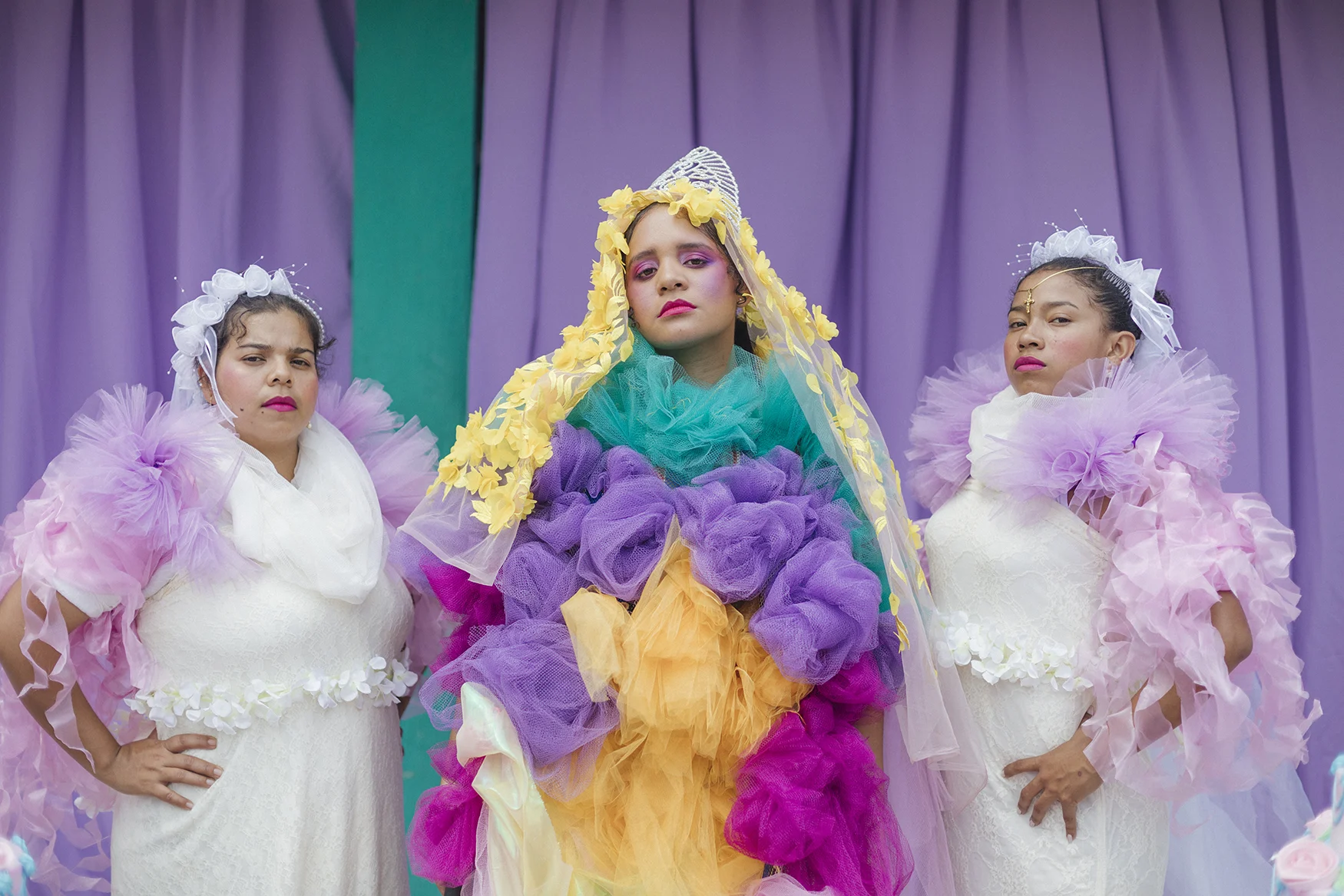
It wouldn’t be a stretch to say that Latin music is perhaps more popular than ever. Now fused with multiple genres and adopted by the mainstream, in 2019 alone it generated half a billion dollars for music streaming services in the US. Latin-influenced tracks regularly top the charts, but for Colombian artist Lido Pimienta this takeover has been a long time coming. Kate Hutchinson meets the musician and multi-disciplinary artist who paved the way for those that followed in her wake.
Photography by Daniela Murillo.
Lido Pimienta may be self-quarantined at home like every other musician on the planet, but that doesn’t mean she’ll be live-streaming from her living room anytime soon. “I am not going to showcase my laundry for the world to see,” says the Colombia-born, Canada-based pop polymath. “I don’t want people to see how I live. I value my work way too much.” When it comes to her music, she wants to immerse audiences in an experience of twists on folkloric costumes and dramatic brass ensembles, not last night’s washing up. “I want to continue to live in the fantasy,” she says.
The global crisis is, however, sorting the grit from the glitz. “This whole thing has helped us understand who are the artists and who are the entertainers,” she says, with typical directness. She finds it amusing to see celebrities, on their TikTok pages, “just so bored at home,” because it exposes how “there's no creativity – you don't see these big stars bringing it.” The compulsion to broadcast oneself 24/7 is an “illness of millennials,” she continues. “I get it: artists, we’re narcissists, right? But I also understand that it's not all about me. And I’m reminded of it because I gotta go wipe my daughter’s butt.”
Lido, 31, is anything but bored at home in Toronto: she is hand-painting a limited edition run of sleeves for her latest album, Miss Colombia, doing interviews to promote it, and looking after her two young children. Oh, and there’s also the TV series she’s writing, adapted from a graphic novel she had made. And the film script that she completed in Spanish and is translating into English. She’s not just a musician, she tells me, but “a multidisciplinary, avant-garde artist. A pop princess. Divine creator. Birther of beauty.”
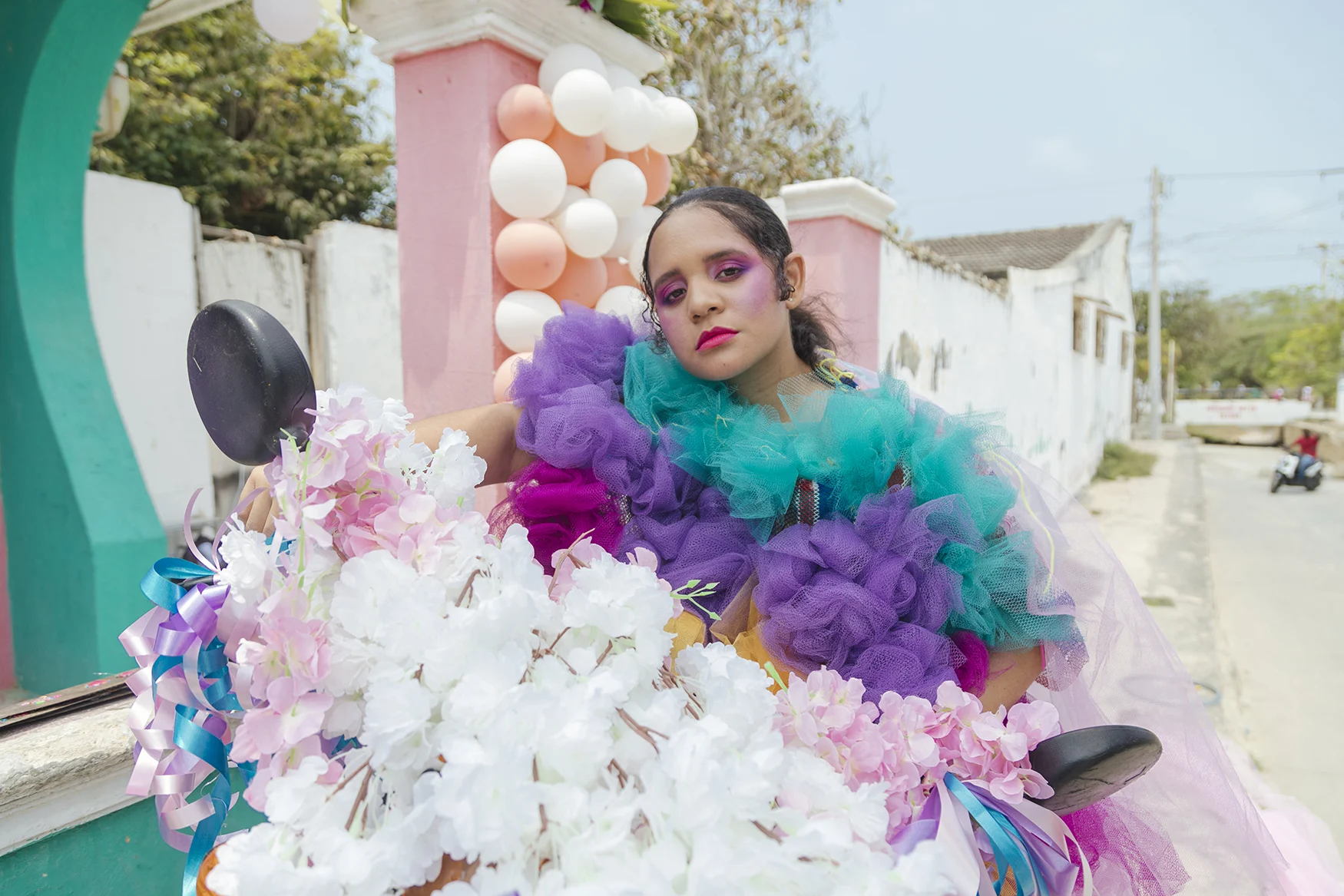
Artists, we’re narcissists, right? But I also understand that it’s not all about me.
She says that she "cannot relate to 'writer’s block'," maybe because she has "little children who need my constant attention and support, so I am always creating in the back of my mind". When her baby goes to sleep, she adds, "it's show time". The mixed medium art she makes includes ceramics – faces encircled with kaleidoscopic woollen fringing – and textiles like appliqué and embroidery, as well as paintings that depict apple-cheeked women holding flowers or wearing headdresses, harking to brightly-hued Afro-Colombia folk art. "I tend to focus on cultures with mixed histories, herstories and heritage," she says, and she often sells her creations as merch on her website because she wants to make art “accessible”. Pimienta describes her creativity as a compulsion. “I'm just always doing my textiles, drawing, everything – whatever I feel when I wake up. I just have to do it because I have to do it.”
If there’s a common rainbow-colored thread that runs through all her output, it’s an uncompromising attitude. Lido is an Afro-indigenous artist making alternative pop music, singing largely in Spanish, identifying as queer and dissecting the politics of womanhood, motherhood, race and the diasporic experience through the framework of her internal struggle between her Colombian and Canadian identities. She does not mince her opinions, is hilariously sharp, and tends to speak in big sensationalist statements, whether she’s calling out appropriation or discussing her disappointment with Latin pop music.
Her first album, 2010’s Color, was about the rosy nostalgia of growing up in Barranquilla, Colombia, an area with a distinct Afro-Colombian heritage. She moved to London, Ontario, when she was 19 to join her mother and sister and met the musician Michael Ramey (a.k.a. Golden Death Music), whom she married young and had a child with at 21. Ramey produced Color, a bright, lo-fi clash of beeps and blips that looked to M.I.A., but the couple separated and Lido left for Toronto when her son was three.
A single mother in the city, the artist found a support network among its many tentacled underground communities (Latinx, trans, Black femme) and taught herself how to produce music via YouTube tutorials. In 2016, she wrote and co-produced La Papessa, which she describes as “a break-up album” with her motherland, released it independently, and it went on to win Canada’s prestigious Polaris Prize. She beat Leonard Cohen and Feist to become the first Spanish-language winner, although she says now that the Polaris were getting ahead of themselves. La Papessa, she says, was just “practice” for Miss Colombia, so she wants to win the Polaris twice. “And if I don't, I am gonna Kanye West whoever gets it instead of me," she laughs.
The award was a triumph on many artistic levels, but also because Lido was a proud young mother challenging the tired and sexist assumption in the creative industries that giving birth diminishes your artistry. “Or your sex appeal, right?” she quips. She has brought her baby with her on tour before, and says that women in music are always asking her how she manages it. “When your only option is to bring your kid with you,” she explains, “the only attitude to have is to own it and to normalise this shit.”
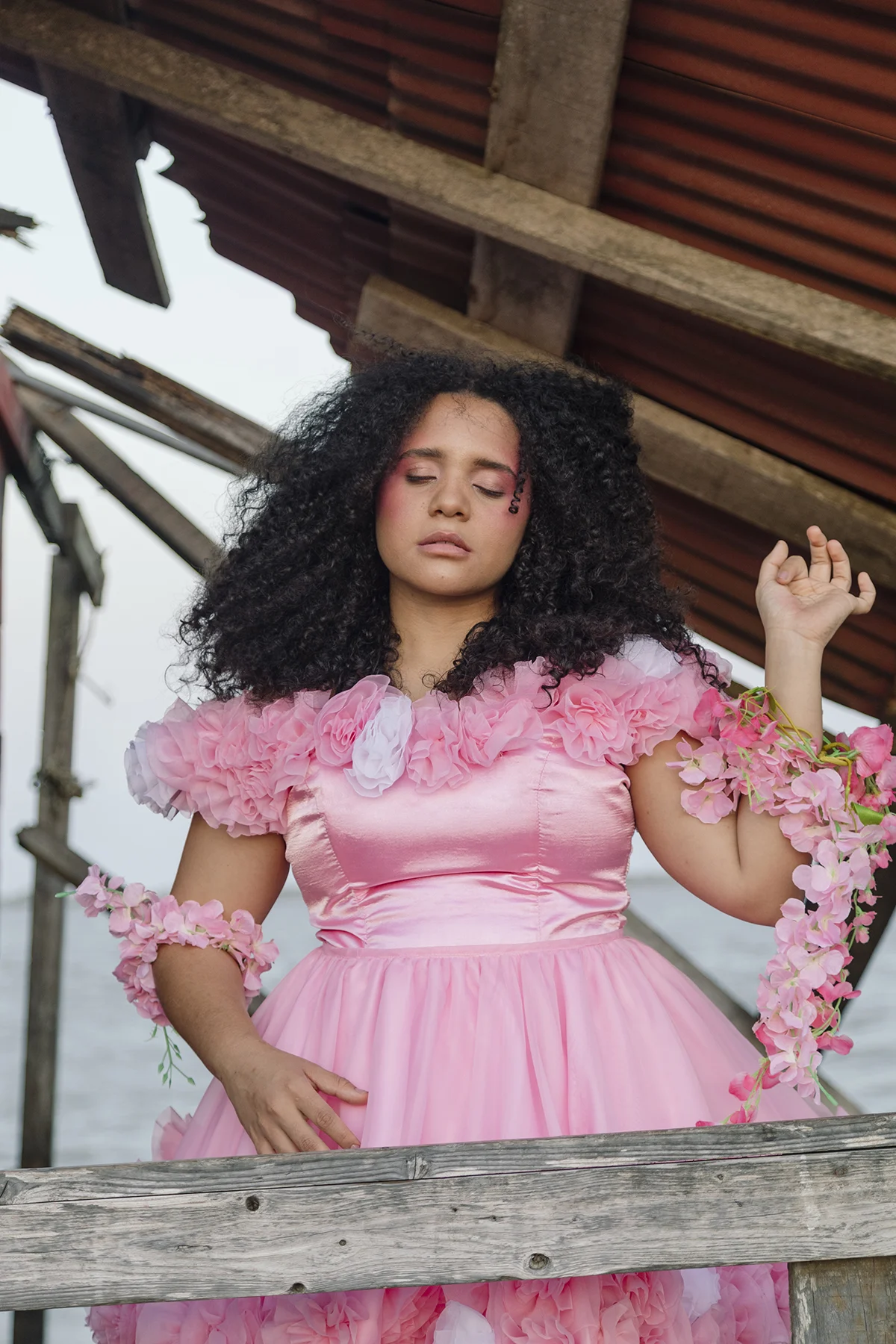
Despite advocating for such issues, however, she is careful not to draw herself as an activist. “I feel like living in my skin is an act of revolution already,” she says, “ becoming a mother so young, being one of the few voices for Wayuu culture” (especially in a country where the disappearance of indigenous women on the Highway of Tears has been likened to “genocide”). “I'm doing all the things that I do to bring light to these issues but my role as an artist is to make things more beautiful and to help people cope emotionally with life,” she continues. “The way that I see revolution is living in the jungle, and eating what you kill.”
Miss Colombia is certainly beautiful in its execution. She got the idea for the album back in 2015, when the host of the year’s televised Miss Universe contest, Steve Harvey, mistakenly announced Miss Colombia as the winner of the pageant, instead of the real winner, Miss Philippines. Lido has said that the humiliating mix-up united Colombia in their hatred of Harvey, though the same spirit of protest doesn’t extend to protecting its indigenous people.
“I have a love/hate relationship with Colombia,” she says, “and that anger comes from my indigenous side where I feel that Colombians and the government do not respect our land, do not respect our people.” Her new album is both a “love letter” to her homeland and a scathing critique of it; a more complex exploration than the polar opposites of her first two records. “When I wrote the songs, it was a way for me to find the joy that I'd left behind when it came to talking about my country,” she says.
Even before you’ve heard the music – a cornucopia of electronic-folkloric incantations and what she calls “industrial reggaeton” that was awarded a rare 8.0 on music website Pitchfork – the cover art is a riot of colour. Lido made her costume in an evening: a pouffy cascade of ruffled violet, fuschia and turquoise, which she wears with arms outstretched like the Virgin Mary, a crown and veil on her head. She says she is celebrating her heritage but also confronting Colombia’s narrow beauty standards.
“I wanted an image that would encompass your First Communion, your quinceañera, your wedding – all the milestones of the perfect Colombian lady,” she explains, and “the idea of the Colombian lady comes from Miss Universe, right?” A quinceañera is “like your sweet sixteen but, depending on your class, you will get one of the following: a car, a trip, or a nose job. Or if you’re rich in Colombia, you’ll get all of it. And it's completely normal. So when you grow up in a country like that, and you're not enhanced looking,” she says, the message is: “Don’t exist. Reduce yourself.”
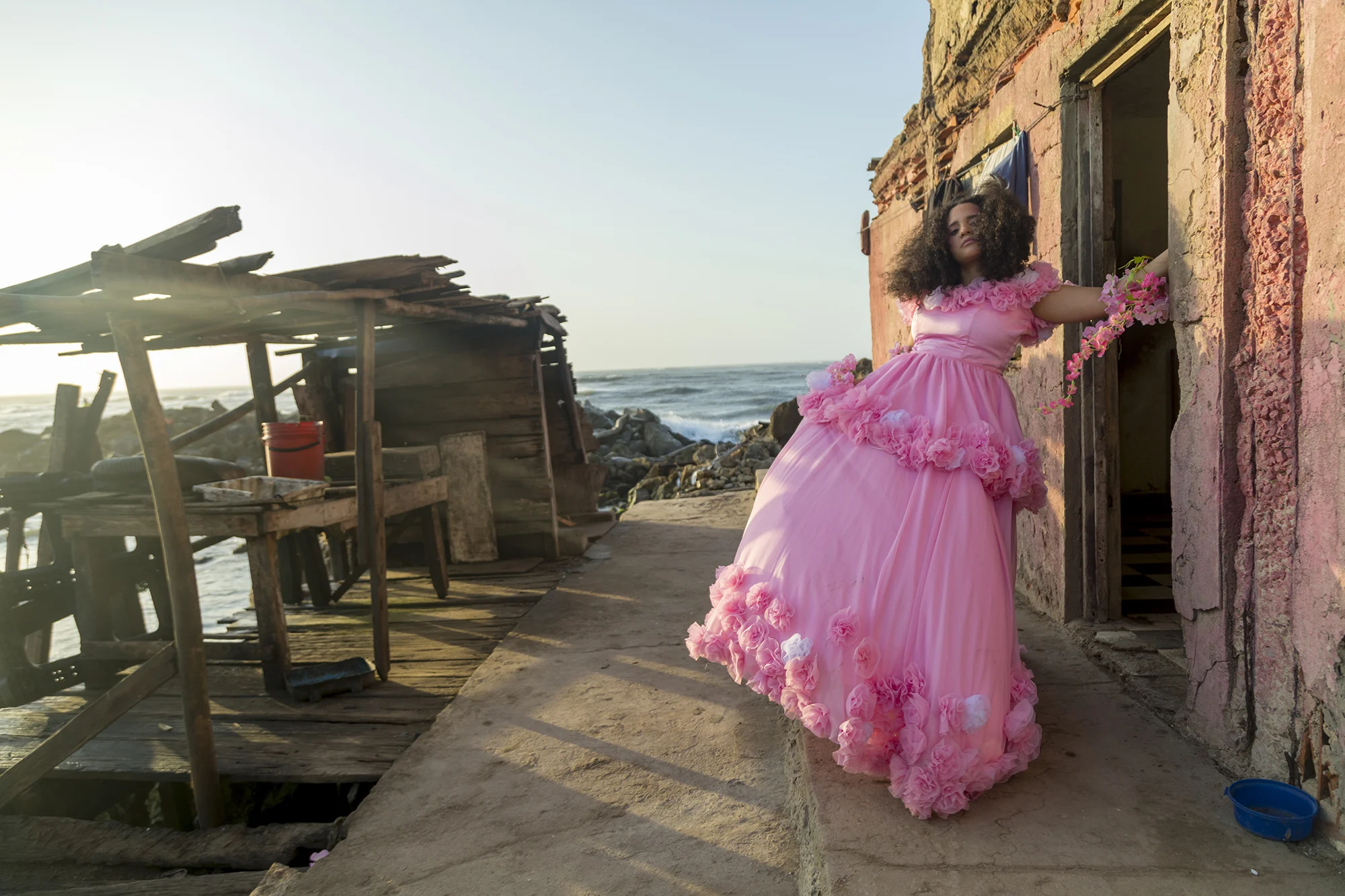
People that live in the small villages and towns are keeping music and culture alive.
In Barranquilla, she attended “a rich school” – her widowed mother worked hard to send her there – and was “one of the few brown kids” among the “misbehaved children of diplomats.” She experienced there how racism was normalised from a young age. “I would be reading my book and all of a sudden I would hear scissors snapping, and one of my locks would fall on my book,” she says. “I look up and two boys go, ‘Oh, we just want to understand why your hair's like that, we're going to study it.’ This behaviour is validated by the media in Colombia because the standard of beauty isn't the Black and indigenous girls. When you grow up like that,” she adds, “you're surviving.”
For Miss Colombia, Lido goes back to her roots to explore that survival. Notably, she went to Palenque, a village in northern Colombia that is recognised as being the first free African settlement in the Americas. On the song Quiero Que Me Salves, she teams up with Palenque band Sexteto Tabala, who blend Afro-Colombian styles like cumbia, bullerengue and porro. In the prelude, you can hear bandleader Rafael Cassiani Cassiani talking about their legacy, while traditional dance squad Grupo Kumbe appear in the video for the track Eso Que Tu Haces. “People that live in the small villages and towns are keeping music and culture alive,” says Lido, and so she put traditional musicians in the middle of the album, because they “deserve the same reverence” as her and her contemporary peers.
She made half the album before she’d even released La Papessa and finished it after she had her second child, building a studio in her home with co-producer Prince Nifty. “We had a little crib in the studio, and the baby would take her naps and that's where we would record,” she says. She wrote the last song for the album, Nada – a duet with Li Saumet, her best friend and frontwoman of the popular Colombian band Bomba Estéreo, about the strength and pain of motherhood – after giving birth.
There are still traces of her brasher former sound but this is an altogether slicker Lido Pimienta. In places Miss Colombia evokes Bjӧrk’s Utopia album, Lido’s sprightly woodwind giving her music a similarly fairytale feel, while triumphant brass fleshes out her more melancholic moments. The collision of the traditional and the contemporary, and her bold use of iconography, draws an obvious parallel with Spain's Rosalía. Lido, however, is quick to remind that she is a forerunner to the current Latin pop boom. Her and her contemporaries “paved the way” for “experimental Latin music,” she says. “There would be no Rosalía without Lido Pimienta. There would be no Bad Bunny or J Balvin without Lido Pimienta.”
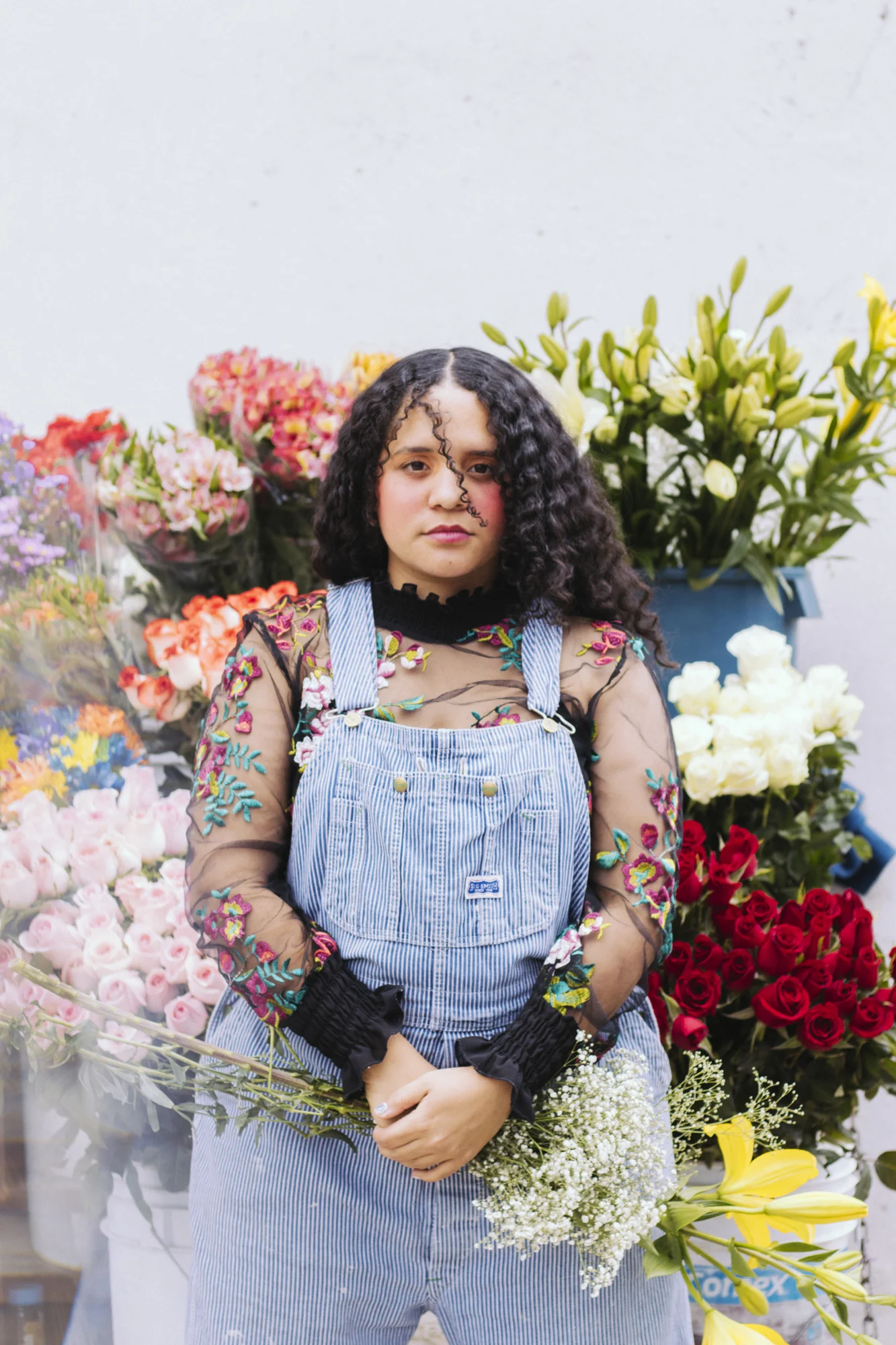
Her confidence cuts like a laser beam. “It started as a coping mechanism,” she says, “as protection for myself: before anyone makes fun of me, I am going to show people that I'm a badass.” But now it’s become a state of mind. “I realized, actually, I am a queen and I need to believe it. And I have to carry myself not pretending or playing a part. I truly am a-m-a-z-i-n-g,” she says, enunciating every letter. “I don't believe in humility. I think that humility comes from the word humiliation or humillación and that's a position that my people – brown, indigenous people – were taught. But my life experience has taught me that if I love myself, with all of my flaws, as well as all of my talents, people are gonna respect me.”
Does she ever doubt herself? “No, I don't,” says Lido, without hesitation. “I don't doubt myself because the worst thing that can happen in life when you're trying something is not trying. Life is a risk. If I fail at something, I can't put blame on myself because I tried and I gave it my all. I go for it. Even if I gotta fake it till I make it, I go for it.”


